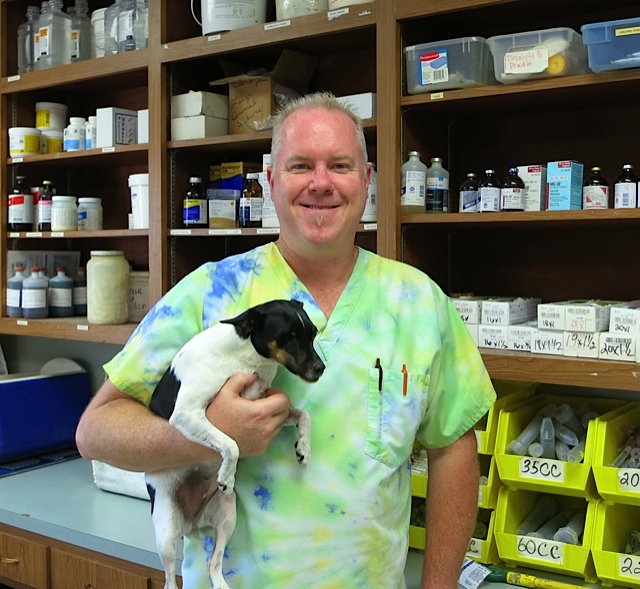
Doing a C-section on a dog and reviving the puppies and having them live is one of those things that make this job worthwhile.
1. What led you to the mission of being a veterinarian?
I always had an interest in animals. My uncle owned a pet store, but I only met him once. My mom told me that I reminded her of him. I was always drawn to animals, especially reptiles — like snakes, turtles, and frogs — what you can find in creeks and lakes. I lived in Florida the first part of my life and moved to Texas in the fifth grade. I did a lot of outdoorsy stuff from the get go.
I went to college knowing I wanted to do something medically related. I just didn’t know 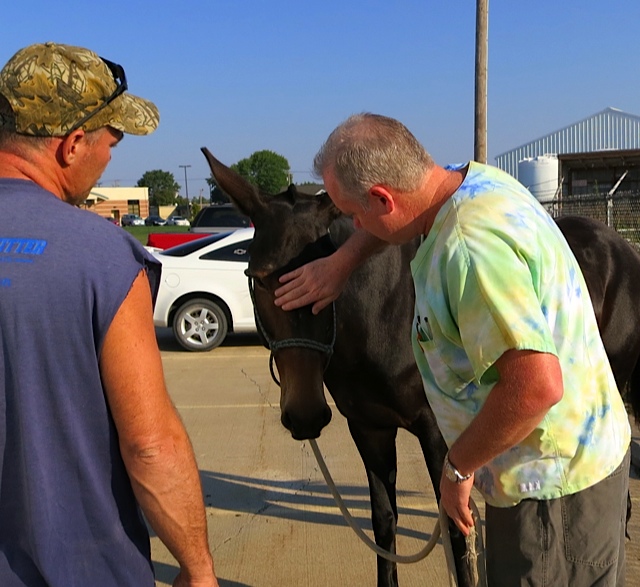 what. I worked in a hospital as a phlebotomist for a summer, but it pushed me away from people. Back then it seemed some people didn’t want to get better. I had the feeling that there were people who even enjoyed being sick. I didn’t want to deal with that kind of a profession. Then I started working with animals. They didn’t seem to know if they were sick or not and just went on with their daily routines trying to do well.
what. I worked in a hospital as a phlebotomist for a summer, but it pushed me away from people. Back then it seemed some people didn’t want to get better. I had the feeling that there were people who even enjoyed being sick. I didn’t want to deal with that kind of a profession. Then I started working with animals. They didn’t seem to know if they were sick or not and just went on with their daily routines trying to do well.
My freshman year of college, I took some courses in animal science. They were easy and I enjoyed them. I was having a ball. We went on a field trip to tour horse facilities in Texas, Oklahoma, Missouri, and ended up in Kentucky and briefly in Tennessee. When I saw how the horses lived in Kentucky, I thought, “I want to be a horse doctor.”
From that time on I took more animal science courses and I got my first job with a veterinarian in Texas. Had I not gone on the trip, I would not have known what a vet truck looked like. It’s a truck with a big pack on its back and all the stuff that you need to treat animals.
A lot of it was dumb luck. I drove into this old horse farm and saw a vet truck. I thought, “That’s 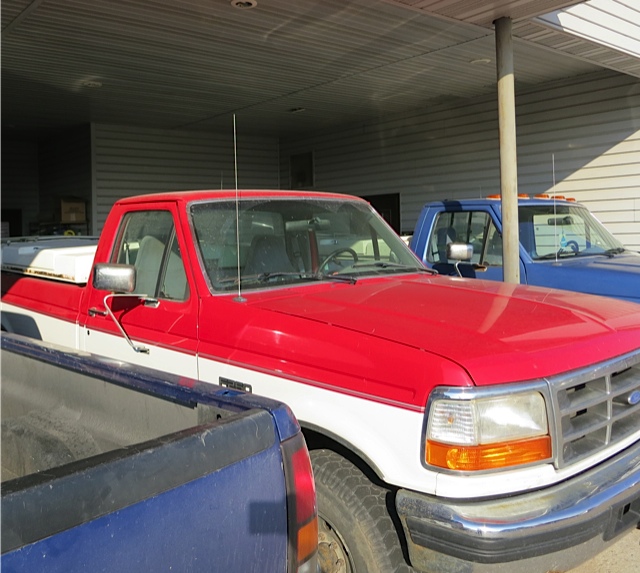 too coincidental.” I went in and met a vet at the ranch. I started volunteering in my sophomore year in college. I wouldn’t go away so the vet hired me. I did cooperative education so I’d be a semester there and a semester back in school. I got into vet school and worked every spare moment at that farm. Needless to say I went to Jerseyville, Illinois thirteen years ago and started working as a veterinarian.
too coincidental.” I went in and met a vet at the ranch. I started volunteering in my sophomore year in college. I wouldn’t go away so the vet hired me. I did cooperative education so I’d be a semester there and a semester back in school. I got into vet school and worked every spare moment at that farm. Needless to say I went to Jerseyville, Illinois thirteen years ago and started working as a veterinarian.
2. What does this mission mean to you?
Every day is a new day. There’s some routine stuff that you can’t get away from, but from day to day, you don’t really know what to expect. Yesterday there was a dog that collapsed. He was laid out flat and they were working on him. He seemed to be developing neurological symptoms, which meant he could have had rabies. We were all watching him and wondered who might have been exposed. It gets your blood flowing a little bit. As the day progressed, the dog actually improved and continues to do so.
Animals don’t talk, but if you listen well enough, they do communicate. They won’t tell you exactly what’s going on, but they will let you know certain 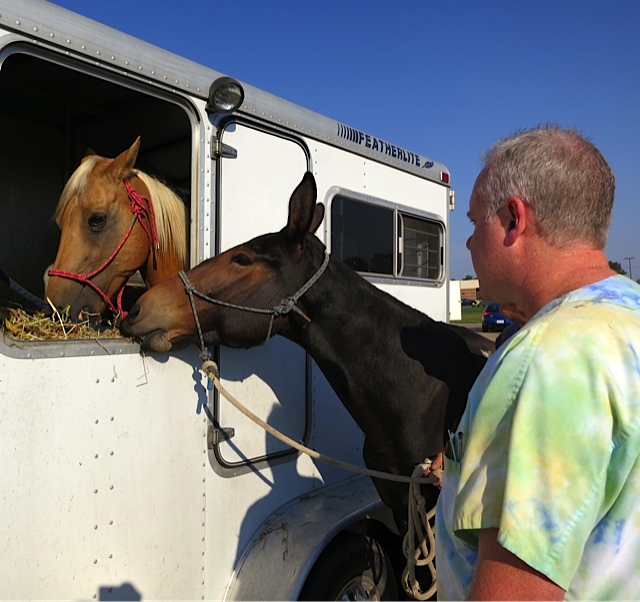 things. I’ve done some chiropractic work now and alternative medicines. Animals seem to respond to that and they act like they are thankful to me. You can tell because they’re actually happy to come in. You don’t see a reaction like, “Ah man, I’m at the vet again. This isn’t going to be a good day.” I see them wagging their tails when they come in. The people say that when they tell their pets they’re going to see me, the dog starts jumping around to get into the car. Now whether or not it’s true I don’t know, but I believe them. The animals seem to respond to this kind of care.
things. I’ve done some chiropractic work now and alternative medicines. Animals seem to respond to that and they act like they are thankful to me. You can tell because they’re actually happy to come in. You don’t see a reaction like, “Ah man, I’m at the vet again. This isn’t going to be a good day.” I see them wagging their tails when they come in. The people say that when they tell their pets they’re going to see me, the dog starts jumping around to get into the car. Now whether or not it’s true I don’t know, but I believe them. The animals seem to respond to this kind of care.
3. What was your best day as a veterinarian?
I don’t know if I could pin down one day but yesterday was something I haven’t ever seen before. There was a cat that came in and I felt 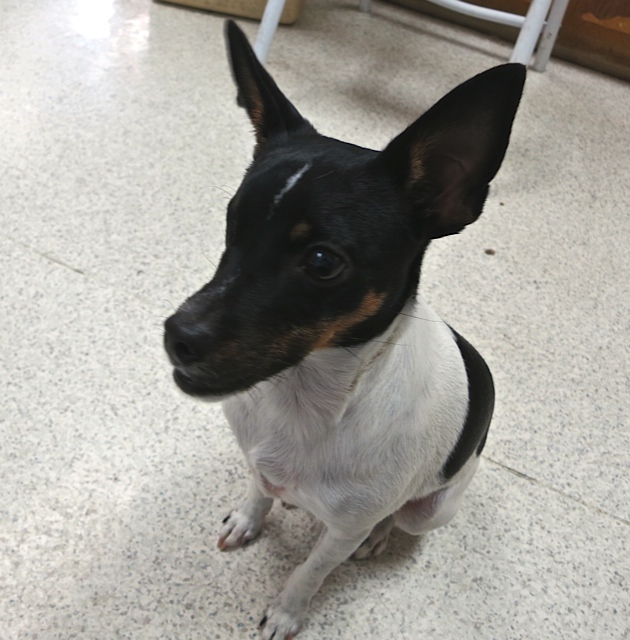 something hard in its belly. It was a little harder than I like to have felt. It turned out there was a bladder stone. We were going to have to do surgery. We went to talk to the people and they were financially strapped. Everybody’s having a tough time financially and I understand. The owner wanted to put off the surgery for a while, do some antibiotics, get the infection under control, and deal with the surgery in a couple months. Her son piped up and said that he had money in his savings that he would like to pay for his cat’s surgery. My heart just went out to him. I’m going to give them a pretty hefty discount on their surgery fee. I had a great feeling. I’ve never experienced that before. This was a true desire to give. It brought tears to my eyes. That kid just saved his cat and saved some money. If I could do this job for free, I would do it day in and day out. But unfortunately it’s just not a feasible situation.
something hard in its belly. It was a little harder than I like to have felt. It turned out there was a bladder stone. We were going to have to do surgery. We went to talk to the people and they were financially strapped. Everybody’s having a tough time financially and I understand. The owner wanted to put off the surgery for a while, do some antibiotics, get the infection under control, and deal with the surgery in a couple months. Her son piped up and said that he had money in his savings that he would like to pay for his cat’s surgery. My heart just went out to him. I’m going to give them a pretty hefty discount on their surgery fee. I had a great feeling. I’ve never experienced that before. This was a true desire to give. It brought tears to my eyes. That kid just saved his cat and saved some money. If I could do this job for free, I would do it day in and day out. But unfortunately it’s just not a feasible situation.
There are some people who will put some money up towards charity. We adjust our prices accordingly on certain things. If it’s a service, I can take some money off. But if it’s a product, we’ve got to get our money back out of what we’ve purchased. It just depends on the situation. There have been some funds established by people who have passed away or their pet has passed away and they want to pass on some help for others.
4. What was your worst day as a veterinarian?
One day that always comes back to mind was a weekend when I was on call. We share our calls here. We work from eight am to three pm and then are on call the rest of the day – Sunday also. The pager started going off while I was still here with animals at the three o’clock time. My day was not done by any means. It just continued, and continued, and continued. The pager never stopped going off. I think we were out until two or three in the morning – nonstop.
There were good aspects to it as well. But there 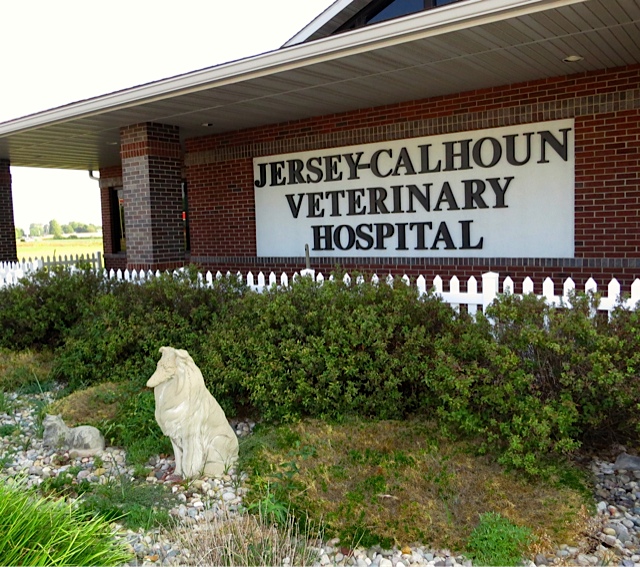 were also bad aspects. There was a rodeo going on in Godfrey, Illinois. We got a call from them saying that one of their bucking horses hurt his foot. We got there and the rodeo was still going on so we had to wait until it shut down. We’re sitting there waiting and waiting and these guys were filling me in, “I don’t know how you are going to do this. Actually this is a bucking bronc! This is not a horse you can touch.”
were also bad aspects. There was a rodeo going on in Godfrey, Illinois. We got a call from them saying that one of their bucking horses hurt his foot. We got there and the rodeo was still going on so we had to wait until it shut down. We’re sitting there waiting and waiting and these guys were filling me in, “I don’t know how you are going to do this. Actually this is a bucking bronc! This is not a horse you can touch.”
I started praying, “Lord be with me. Protect me because this could be a really bad situation.” They ran this horse into the shoot at the end and sure enough it had a big, huge wound on its heel. It was not a good situation, but it could have been worse. It could have been a broken leg and we’d have to put him to sleep. But this is was a wound that could heal. I was not going to be able to deal with it properly unless I could lay this horse down with general anesthesia.
Through the bars of the bucking shoot I had to figure out a way to get an IV into this horse. This 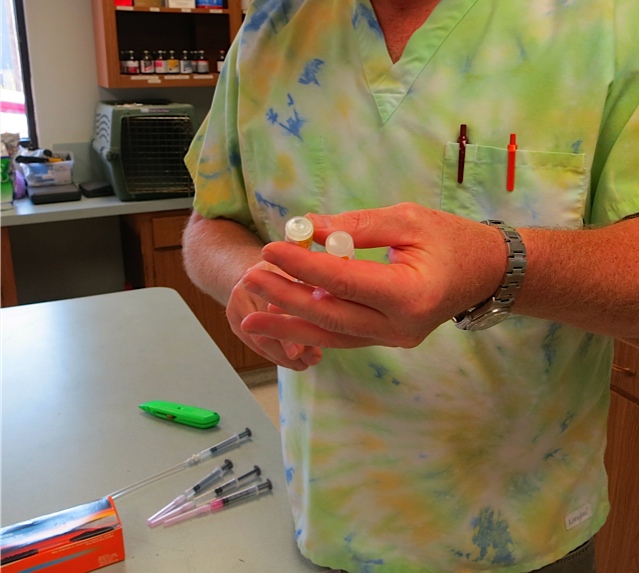 horse could have snapped my arm in half or ripped it off at any time. Reaching through there, and slowly, slowly talking to the horse, I had to do two intravenous injections. I had to space them out according to how he reacted to the first one. The first one is a sedative and the second one would lay him down. I got in there with my arm and was ready to pull it out at any given time. Somehow I got the needle in and gave him the first drug. So, now I’m kind of home free! Once he was sedated he was able to handle things.
horse could have snapped my arm in half or ripped it off at any time. Reaching through there, and slowly, slowly talking to the horse, I had to do two intravenous injections. I had to space them out according to how he reacted to the first one. The first one is a sedative and the second one would lay him down. I got in there with my arm and was ready to pull it out at any given time. Somehow I got the needle in and gave him the first drug. So, now I’m kind of home free! Once he was sedated he was able to handle things.
The next step was the second shot to lay him down. We got that into him and he was starting to go down in the shoot. We had to open the door and let him lay down. We kind of dragged him out a little bit. We’ve got all these cowboys helping us. People from the stands wanted to help out the veterinarian.
We got down there and cleaned up the foot. I just took off a big piece of flesh that was hanging off. I gave him a big wad of antibiotics and anti-inflammatory pain medication. I had to send these people home with instructions to do hydrotherapy. They would have to get him in an enclosed area and blast his foot with a hose. They’d have to get a topical preparation on his foot and they’d have to give him oral antibiotics and painkillers. I don’t know how it went from that point on.
Then I had to go from there to another horse up the road. It was about midnight by now. That horse had an abscess, an infection in the foot. So we had to deal with that. Then somebody had called earlier and had a calf die about twenty or thirty miles west of where we were. It was now about three in the morning.
We put it off to the next morning. But we had to get up early and go out to see the calf. It had 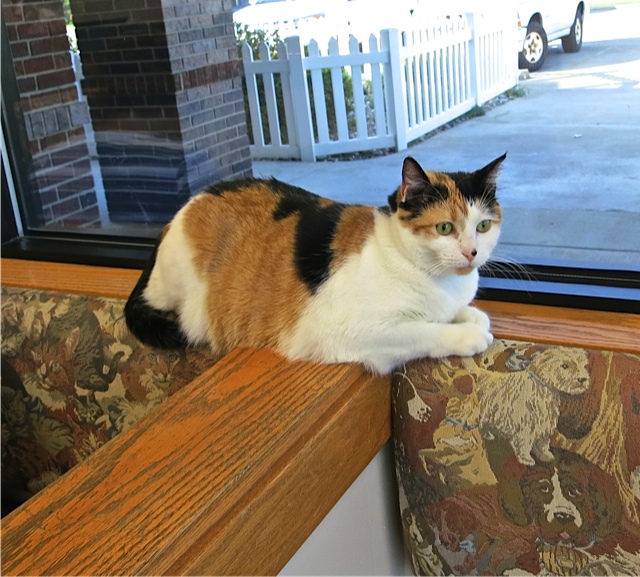 probably gotten out of the pasture and gotten hit by a car. It was lying in a ditch. The insurance needed prove of death – that the guy wasn’t trying to lie and the calf was really dead. Here is this shell of a calf. It was certainly dead. We knew it was there because of the smell. Well that capped off a weekend that just never ended. I was so happy to give the pager back at the end of that time period and finally get a good night’s sleep.
probably gotten out of the pasture and gotten hit by a car. It was lying in a ditch. The insurance needed prove of death – that the guy wasn’t trying to lie and the calf was really dead. Here is this shell of a calf. It was certainly dead. We knew it was there because of the smell. Well that capped off a weekend that just never ended. I was so happy to give the pager back at the end of that time period and finally get a good night’s sleep.
When I have to do reproductive work on horses, I can really tell who wants to be a veterinarian. You do rectal palpations, which is putting your arm up the horse’s rear end. You have a big sleeve on and you get pooed on, you get peed on sometimes. You’re going to get dirty. So many times I’ve had children come with their parents and want to see how to be a vet. They say, “Oh I want to be a vet.” But as soon as they see my hand in there, they leave the premises and say, “I want to be an accountant. I want to be …..” They change their mind really good! But the ones who stick with it when they see that and say, “Oh my gosh,” — those are the ones who are going to be the vets.
5. How did you survive your worst day?
Just knowing that I’m helping animals, makes my job worthwhile. It’s a matter of going home to my kids, which are all four legged critters including a 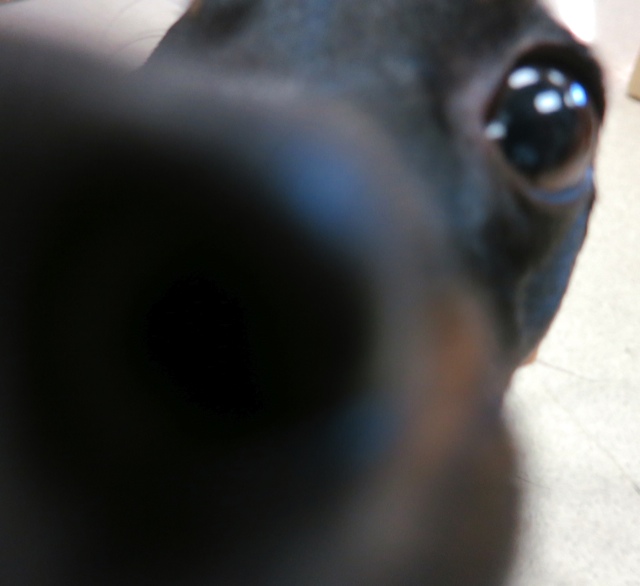 lizard. The lizard doesn’t show too much emotion, but one of the dogs, the one I found ten years ago now, has to be within eyeshot of me when I get home. If I go through the glass door, she’ll be staring at me waiting for me to come back. They make your day that much better when you get home.
lizard. The lizard doesn’t show too much emotion, but one of the dogs, the one I found ten years ago now, has to be within eyeshot of me when I get home. If I go through the glass door, she’ll be staring at me waiting for me to come back. They make your day that much better when you get home.
(Note: A few years ago, a cat came into Dr. McCormick’s office. It had been sleeping inside the engine of a car. The owner didn’t know the cat was under the hood. He started the car engine and the cat’s head was severely injured by the motor fan. Dr. McCormick saved the cat and put it’s face back together.) I remember putting this cat back together and thinking, “That looks like a cat again.” It was layer by layer and this might go here and this might go there. (Note: The cat went from having no face to looking just like a normal cat – except for a small portion of missing ear.)
Bringing new babies into the world is the best part of my job and taking animals out at the end of their life is the worse part. But everything in between makes up for it. Doing a C-section on a dog and reviving the puppies and having them live is one of those things that make this job worthwhile.
- « Previous person: Pat Stewart
- » Next person: Mary Massey